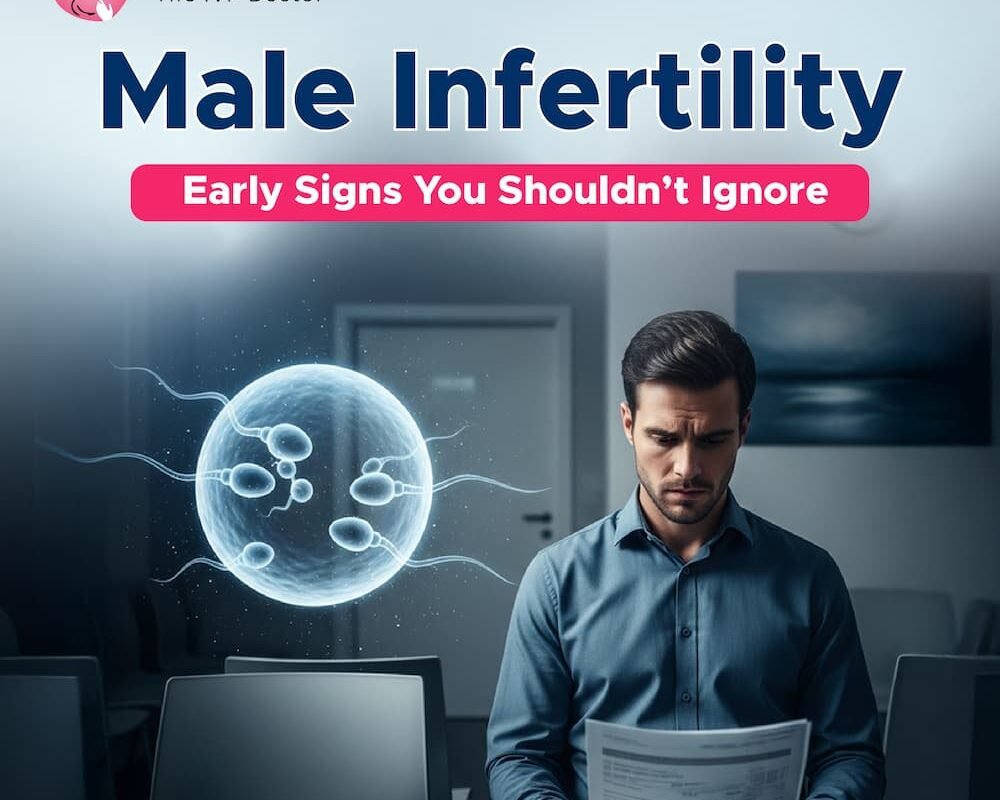Many women dream of becoming mothers, but for some, getting pregnant is harder than expected. Infertility can be confusing and stressful, especially when you do not know what is causing it. Understanding the common causes of female infertility can help women and couples know what to look for and when to ask for help. For a deeper look at symptoms, testing and treatment options, read our blog on Female Infertility: Symptoms, Causes, Tests & Treatment.
Female infertility means a woman has trouble getting pregnant after one year of trying. If she is over 35, doctors usually check sooner, after about six months. The good news is that many causes of infertility can be treated once they are identified. Clinics like Dr Mazen IVF Clinic support women through testing and treatment, but the first step is education.
The Most Common Reasons Women Experience Infertility
1. Ovulation Problems
One of the most common causes of female infertility is trouble with ovulation. Ovulation is when the ovary releases an egg. Without an egg, pregnancy cannot happen.
Some women ovulate only sometimes. Others may not ovulate at all.
Common Reasons For Ovulation Problems Include:
Polycystic Ovary Syndrome (PCOS)
PCOS is one of the most common ovulation disorders. Women with PCOS may have irregular periods, extra hair growth, acne, or difficulty losing weight. Their hormones become unbalanced, which can prevent eggs from developing or releasing normally.
Hormone Imbalance
Hormones control the menstrual cycle. If hormones like estrogen, progesterone, or thyroid hormones are too high or too low, ovulation may not happen regularly.
Stress, Weight Changes, and Overexercise
Extreme stress, sudden weight loss, severe dieting, or very intense exercise can stop ovulation for some women.
When ovulation does not happen regularly, it becomes harder to know the right time to try for pregnancy. Thankfully, many ovulation issues can be treated with medicine or lifestyle changes.
2. Problems With Fallopian Tubes
Another common cause of female infertility is blocked or damaged fallopian tubes. The fallopian tubes are where the egg and sperm meet. If the tubes are blocked, the sperm cannot reach the egg, and fertilisation cannot occur.
Tube problems can be caused by:
Pelvic Inflammatory Disease (PID)
PID often happens because of sexually transmitted infections like chlamydia or gonorrhea. If not treated early, these infections can scar and block the tubes.
Previous Surgeries
Surgeries in the abdomen or pelvis, including those for appendicitis or endometriosis, can sometimes cause scar tissue. This scar tissue may block or damage the tubes.
Tubal Infections
Infections in the tubes can lead to swelling and blockage.
Women with blocked tubes usually do not feel symptoms. Only tests such as an ultrasound or a special dye test can show if the tubes are open. Learn more about common female fertility tests to understand what each involves.
3. Endometriosis
Endometriosis is another very common cause of infertility. It happens when tissue similar to the lining of the uterus grows outside the uterus. This growth can be on the ovaries, fallopian tubes, bladder, or other organs in the pelvis.
This extra tissue can cause:
- Painful periods
- Heavy bleeding
- Chronic pelvic pain
- Pain during sex
Endometriosis can make it harder for the egg to be released or for the sperm to reach the egg. It can also cause scar tissue that blocks the tubes. Even mild endometriosis can affect fertility.
Treatment can include medication, surgery, or fertility treatments, depending on the severity.
4. Uterine or Cervical Problems
The uterus is where a baby grows during pregnancy. The cervix is the opening at the bottom of the uterus. Problems with either one can affect fertility.
Fibroids
Fibroids are non-cancerous growths in the uterus. Many women have them. Some fibroids can affect fertility if they grow inside the uterus or change its shape.
Polyps
Polyps are small soft growths inside the uterus. These can interfere with implantation.
Abnormal Cervical Mucus
Cervical mucus helps sperm travel into the uterus. If it is too thick or not healthy, sperm cannot move well.
Structural Problems
Some women are born with an unusually shaped uterus, which can make pregnancy harder.
Most uterine problems can be fixed with minor surgery or treatment.
5. Age-Related Infertility
Age is one of the strongest factors responsible for female fertility. Women are born with all the eggs they will ever have. As they get older, the number and quality of eggs slowly decrease.
Fertility starts to drop more noticeably after age 35. It becomes even harder after 40 years of age. This does not mean pregnancy is impossible at these ages, but it may take longer or need medical help.
Age affects eggs in two ways:
- Fewer eggs remain
- Eggs are more likely to have genetic problems
This is a natural process and happens to every woman.
Read more about the role of age in female fertility to understand the science behind this change.
6. Ovarian Reserve Problems
Ovarian reserve means how many healthy eggs a woman still has. Some women have a low ovarian reserve even at a young age. This may happen because of:
- Genetics
- Autoimmune conditions
- Chemotherapy or radiation
- Surgeries on the ovaries
Low ovarian reserve does not always show symptoms. It is usually found through blood tests or an ultrasound.
7. Unexplained Infertility
Sometimes, even after many tests, the doctor cannot find a clear cause. This can feel frustrating, but it is more common than many people think. About one in ten couples is diagnosed with unexplained infertility.
The silver lining here is that even without an identifiable reason, couples can still conceive with proper assistance and care.
Conclusion:
Infertility can feel overwhelming and emotionally heavy. If you have been trying to get pregnant for 12 months without success or for six months if you are over 35, it is important to reach out to a healthcare provider. A fertility doctor like Dr. Mazen can help you understand the cause and guide you toward the right treatment plan. Try to stay hopeful during the process. Many women are able to conceive once they receive the proper care and support.
ALSO Read: Tips to Increase Female Fertility Fast





